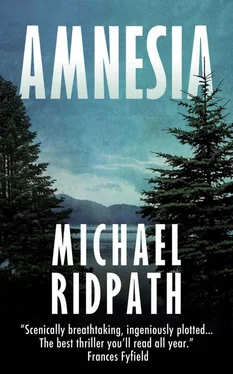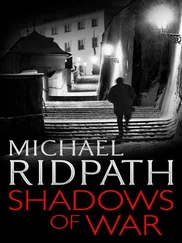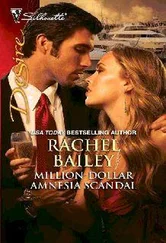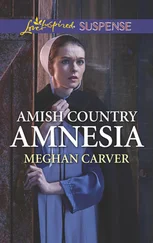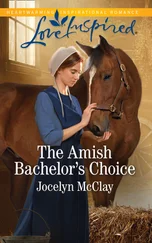What do you think? I hope you will just say yes right away this time and I won’t have to persuade you. But, if necessary, I will!
Let me know, so Stephen can organize things.
Yours,
Nathan
Why not? I usually didn’t take time off in the school holidays; my two partners had school-aged children and I was happy to let them have first choice of dates, but I was pretty sure they should both be back at work by the middle of August.
I had seen Nathan the year before, when I had travelled down to London to meet him on one of his business trips, and we had lunched at the Savoy. And Madeleine and Nathan had stayed with me in Knaresborough in 1955. But I hadn’t seen Stephen since Capri.
Nor Sophie.
I had been tempted to visit Sophie in 1947 right after Capri. Stephen was in Hollywood, and she was in Twickenham with the children. I had been so tempted.
But I had promised. If I had tried to see her then, and she had let me, her family would have been blown apart. I would have had Sophie for myself, but I had promised, and after the fool I had made of myself before the war, I wanted to keep that promise. I had gone to great lengths to do so, even becoming engaged to Gillian, the student nurse at Bart’s. Fortunately for both of us, I had eventually realized that avoiding the temptation of another woman was a really bad reason for marriage, and the engagement had fizzled out.
But now, twelve years later, it would be safe to meet. Sophie would be forty-three now: fat probably, matronly. Stephen, I knew, was still handsome, but in his last film his dangerous charm had changed subtly to aggressive smarm. It would be good to see them, and Tony, whom a bored Elaine had left three years before. No mention of her.
I grabbed pen and writing paper and dashed off a quick reply. Yes, I would love to come.
I took the sleeper up to Inverness and then on to the little station of Novar, which was actually in the village of Evanton. There I was pleased to see Nathan and a chubby Tony waiting for me.
‘Thought we’d both come down and get you,’ said Nathan, pumping my hand. ‘Like the last time.’ He was tanned, his neat dark hair was flecked with grey at the edges, although his moustache was still black and his brown eyes as sharp as ever. He was wearing a light tweed suit but with plus fours, not a kilt, thank God; I wasn’t sure I could have stood Nathan in a kilt. Tony was wearing slacks, an old cotton shirt and a big grin.
Nathan carried my bag to an old Bentley parked in the small station car park.
‘This is very grand,’ I said. ‘Is it yours?’ I could see Nathan owning a Bentley, but I didn’t see how he could have got a car to Britain.
‘No, it comes with the estate. It belongs to Stephen’s father. One of the ghillies doubles as a chauffeur, but I persuaded him to let me drive it.’
‘I don’t remember Stephen talking about a Scottish estate.’ Stephen’s family had made its fortune in the previous century out of polish and related cleaning goods. This had bought them a manor house in Wiltshire and Stephen his education at Eton and Oxford, but he hadn’t mentioned any visits to the Highlands.
‘His father inherited it ten years ago from Stephen’s great-uncle. I think Stephen has only been there a couple of times.’
‘It was good of his father to let us have it.’
‘Oh, I’m renting it for the week,’ said Nathan. I raised my eyebrows; that seemed a touch mercenary on the part of Stephen’s family.
‘Don’t worry — it’s fine,’ said Nathan. ‘In fact, I think it’s a great idea. And the estate staff are pleased as punch to have the English laird’s film-star son here. We plan to go stalking tomorrow. Do they do that kind of thing in Yorkshire?’
‘No. Massacring birds is their thing,’ I said.
Nathan piloted the Bentley through Evanton, and up a steep wooded glen. ‘That’s the River Glass down there,’ he said. ‘It flows down from Loch Glass and Wyvis Lodge.’
‘What on earth are you doing in Scotland?’ I asked. ‘There’s no oil up here, is there?’
‘There may well be. In the North Sea. And there’s definitely gas. It might be the next bonanza, if we can figure out how to get it out. I’ve been talking to geologists, trying to decide whether Wakefield Oil should get involved.’
‘Bit of a risk, isn’t it?’
Nathan grinned. ‘Absolutely. But, like I’m always telling you, the oil business is all about risk: if you don’t take risk, you don’t make money. The trick is to take the right risks, and to make sure they don’t bankrupt you if they go wrong.’
Wakefield Oil was not going bankrupt. Five years before, I had found a way of investing five hundred pounds of my savings in the stock of the company quoted on the New York Stock Exchange, since when it had quadrupled. I wasn’t planning to sell; I would stick with Nathan.
‘How’s Capri, Tony?’ I asked. ‘I hope you are still painting?’
‘Definitely. But it’s quite a while since I painted a rotten eggplant. I’m selling a bunch of pictures to the tourists. They pay top dollar, especially the Germans.’
‘I’m sorry to hear about Elaine.’
‘I’m not,’ said Tony. ‘She gave me an ultimatum. Get a proper job and leave Capri, or she would walk out. Wasn’t a difficult decision, really. Now she’s making some other sap unhappy; a lawyer in Chicago. And I have a housekeeper called Luciana. A widow from the war.’ Tony grinned. ‘She sees to my needs.’
‘Capri really is an island of sin, isn’t it?’ said Nathan.
‘Oh I don’t know. She’s happy. I’m happy. Life’s OK.’
We crossed the River Glass on a wooden bridge right next to a lodge, and entered the estate. Eventually we broke out of the woods and Loch Glass and Ben Wyvis opened up before us. It was a warm day and the heather glowed orange in the August sun. I had always loved the moors in Yorkshire, and this one made my heart sing. If this weather held up, it would be a tremendous few days.
We drove along the edge of the water, a deep royal blue in the sunshine, rounded a curve to the left and arrived at a large Victorian stockbroker’s house, squatting at the head of the loch twenty yards back from the water. As we pulled up, a burly young man hurried up to the car to carry my small bag.
The house’s decoration mixed Victorian bourgeois and Scottish laird. A magnificent twelve-pointer red deer stag glared at William Morris prints and Chinese vases in the hallway. There was dark wood and heavy curtains, and a few haphazard portraits of people who weren’t called Trickett-Smith. It was very comfortable: more than that it was luxurious, especially for somewhere so isolated.
Madeleine, Sophie and Stephen were waiting for me in the drawing room. Madeleine had put on a little more weight every time I had seen her, but she was still a beautiful woman. Unlike Madeleine, Sophie had given birth to children — three of them — yet she was not matronly at all; in fact her figure was just as I remembered it. Her face was lined, but her eyes were still large and blue and wistful. The freckles were still there. And she was very pleased to see me.
As was Stephen, who shook my hand and clapped me on the back. He was probably the one who had changed most: jowls had appeared around his neck, and wrinkles pointed downwards from his impressive nose, lengthening his face. Sadness and anger combined to produce a sort of melancholy bitterness. He was still good-looking, there was no doubt about that, but if you were a cinema-goer, you would want the heroine to fall for the other chap.
‘I read Trail of the Scorpion ,’ he said to me. ‘We both did. It was in all the bookstores in America. I never realized you had been in so many tight scrapes during the war! I really didn’t think you were going to make it through the desert.’
Читать дальше
